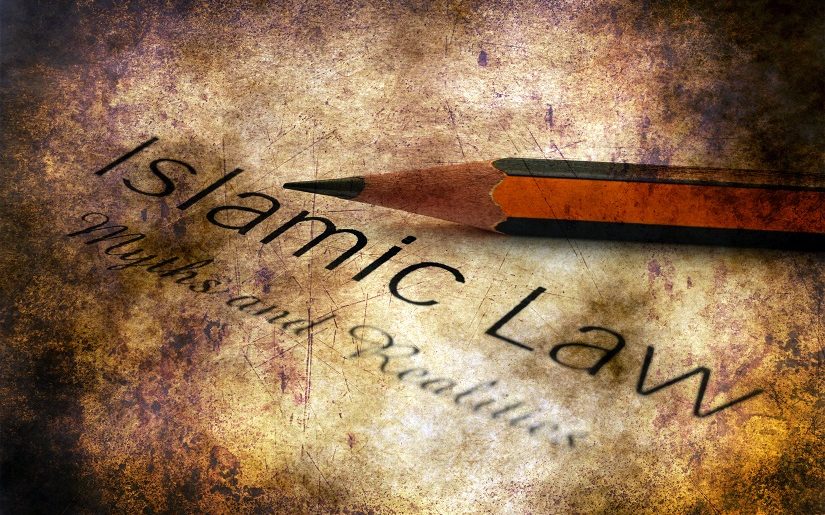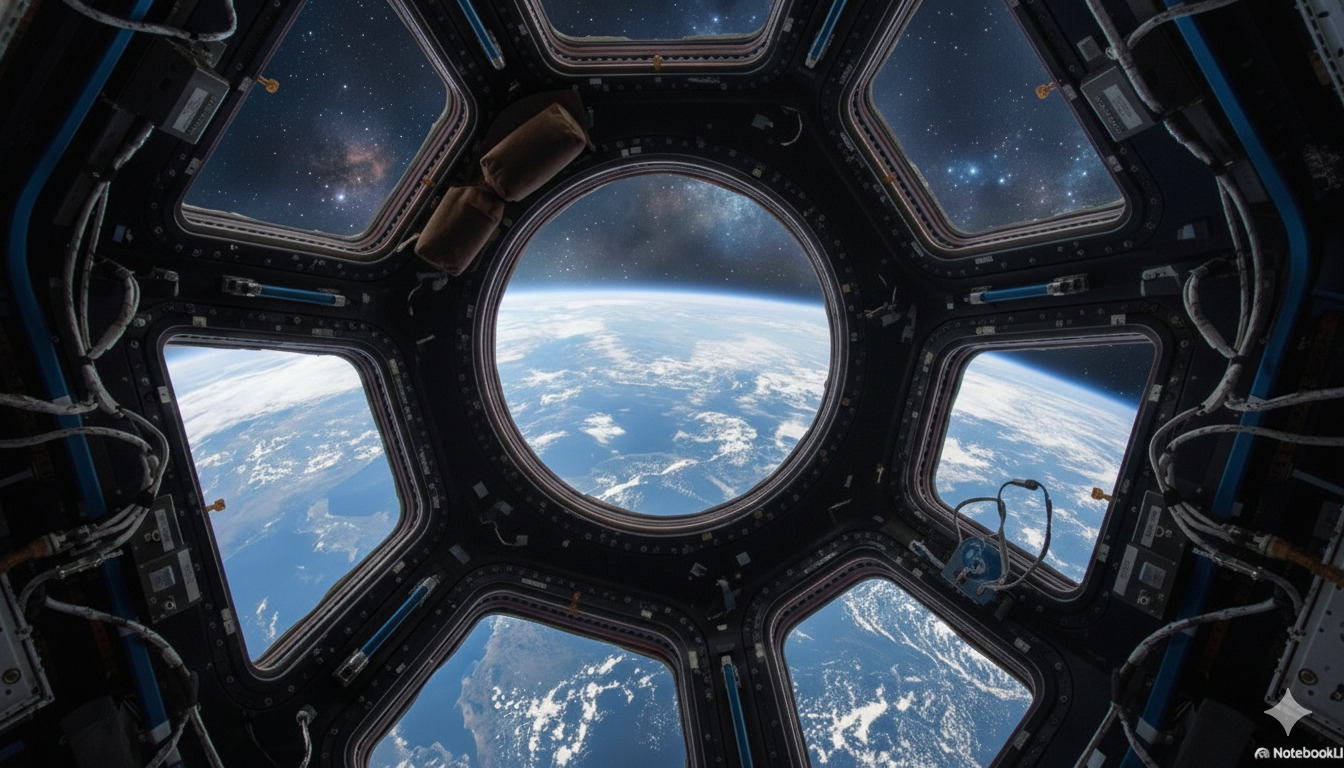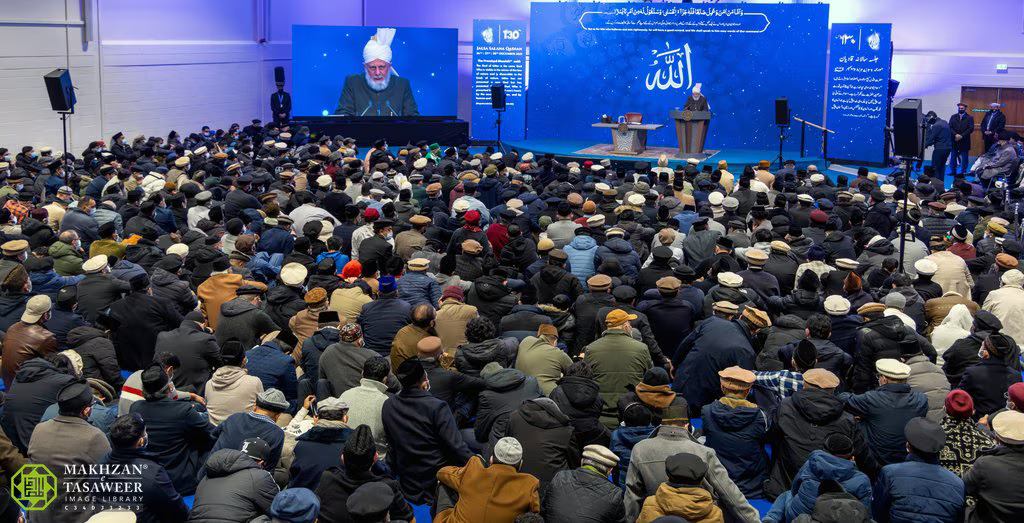Islam envisions the world in the form of a pluralistic ecosystem. Hence, enacting shariah law becomes impossible even in countries with Muslim majorities, let alone the multireligious nations and societies.
SALEEQ AHMAD NAIK, QADIAN
SEPTEMBER 7, 2021
The term shariah, in its general perception, brings to one’s mind visualization of barbaric acts and horrendous practices. It acquires an even uglier connotation when followed by the word law, especially to the general non-Muslim populace, who are not completely aware of the true spirit of Islamic teachings.
With the recent resurgence of Taliban in Afghanistan, the term has once again taken the forefront of the international headlines and the general response to the incident is resulting in further demonization of the word, creating an impression of shariah as a symbol of oppression, persecution and terrorism.
While this can naturally result in the stigmatization of a community of billions of people, it will also portray an ideology built on the very principle of peace as a menace to the world. This, hence, calls for a proper understanding of the term and an analysis of the fact if shariah really is a threat to the world if implemented, or if it can be implemented at all.
What is Shariah?
To start with, let us examine the term from a linguistic point of view which would amply demonstrate how the word has been dragged from its etymological vastness to a very narrow understanding. Shariah literally denotes a path leading to water. Lane, in his lexicon, explains that shariah “signifies a place of descent to water; or a way to water. And hence, al-Shariah as also al-Shir’ah signifies al-Deen [religion] because it is a way to the means of eternal life”[1].
In this aspect, the word shariah rightly represents the teachings of Islam and denotes the purpose they serve, which is to provide moral guidance to man and quench his spiritual thirst.
Technically, shariah can be categorized into five main branches: ibadah (worship), mu’amalat (transactions and contracts), adab (behaviour, morals and manners), i’tiqadat (beliefs), and uqubat (punishments).
In order to regulate and govern these five branches, certain guidelines have been set forth by Islam so as to build a moral and just society.
Hence, shariah can be understood as a code of living prescribed for Muslims, who willingly accept to follow the Islamic way of life and look to its teachings for guidance in matters pertaining to their lives.
Does Shariah require a separate legislation?
One of the major misconceptions regarding shariah is that it demands a separate legal system to function. According to this notion, Muslims cannot integrate into any society other than an Islamic one. However, nothing can be further from the truth.
As already explained, shariah is a set of principles that offers guidance to those who adhere to the religion of Islam and mostly comprises injunctions that deals with man’s morality. There is no doubt that Islam tends to reform society and the world at large, but that is a task to be accomplished through reforming people individually. Hence, most of the Islamic shariah can be followed in the presence of other legislations and abiding by the laws of countries and does not require, like other legal systems, separate legislations to operate.
The Fourth Caliph of the Ahmadiyya Muslim Community, Hazrat Mirza Tahir Ahmadrh states in this regard:
Most of Islam, Christianity and Hinduism can be practised without there being the law of the country. The more so since the general principle accepted by the modern political thinkers is that religion should not be permitted to interfere with politics and politics should not be permitted to interfere with religion.[2]
Hence, shariah can be practised in any society where Muslims are free to observe their religious obligations without restrictions. If such rights are undermined in any nation or country, a Muslim is advised to migrate to a place where he can practise his faith freely.
Can shariah be made the law of land?
Another question that needs to be clarified is if shariah can be formalized when Muslims constitute the majority of a country. It should be remembered that the concept of legislating shariah would require the imposition of Islamic ideologies upon those who do not subscribe to or believe in its concepts.
This would go all the way contradictory to the basic principles of Islam. Pluralism and religious tolerance are among the fundamental values and core tenets of Islam. The Holy Prophetsa was addressed by the Holy Quran in the following words:
For thou art but an admonisher; thou art not [appointed] a warden over them.[3]
This means that Prophet Muhammadsa who was commissioned by God to create an Islamic society was enjoined, in no uncertain terms, that he had no authority to forcefully impose his opinions on others.
The Holy Quran further states:
There should be no compulsion in religion.[4]
Explaining this verse Hazrat Mirza Tahir Ahmadrh says:
This is a statement of the Holy Quran of course, but it is a universal statement which can never be changed. It is an example of how laws can become permanent and universal. It says there is no coercion in faith or in matters of faith. No coercion is possible and no coercion is permitted.[5]
Hence, in light of these principles, it is impossible to force Islamic ideologies upon those who do not follow them. However, His Holinessrh points out yet another problem with legislating shariah. Even in Islamic societies, there are many Muslims, who in their normal way of living, do not practise Islam in the ideal way. Moreover, Muslims themselves differ in their understanding regarding many Islamic notions to a great extent. This becomes a practical impediment in the implementation of shariah law as it would undermine the opinion of one group or another with respect to their beliefs.[6]
In light of all this, enacting shariah would mean that people – both Muslims and non-Muslims – are deprived of their basic rights while Islam recognizes those rights and stands for them.
Thus, when Islam envisions the world in the form of a pluralistic ecosystem, enactment of shariah law becomes impossible even in countries that are constituted of Muslim majorities, let alone the multireligious nations and societies.
Justice: The cornerstone of Islamic government
It should be remembered that the separation of religious affairs from the matters of state that Islam endorses is not because it does not address the issues of governance, but because it forbids, as already explained, the application of its principles upon those who do not follow them. Governance is an important aspect of human life and Islam has laid out perfect guiding principles on how man should carry out this great responsibility. To this, we turn now.
The Holy Quran does not make mention of any peculiar or specific form of government rather it presents the fundamental and essential principle of absolute justice as the cornerstone for all legal systems of the world. Allah states in the Holy Quran:
Verily, Allah commands you to make over the trusts to those entitled to them, and that, when you judge between men, you judge with justice. And surely excellent is what Allah admonishes you with! Allah is All-Hearing, All-Seeing.[7]
On the one hand, the verse draws the attention of Muslims towards the election of a representative as their ruler and are bidden to vote for one best fitted for the office. Conversely, the rulers also are commanded to be just and fair in their administration.
The central point underscored in the verse is justice while it is a fact that justice can only be exercised when different people who inhabit a country are given equal rights in every aspect of their lives.
This true concept of shariah was exemplified by the Holy Prophetsa when he, in his capacity as the Head of State of Medina, resolved disputes among Jews by applying Talmudic law[8]. This suffices as evidence to reject the misconstrued notion of compulsive application of Islamic law as the law of land.
Hazrat Mirza Tahir Ahmadrh states in this regard:
Islam pleads for the secular type of government more than any religion and more than any political system…. The very essence of secularism is that absolute justice must be practised regardless of the differences of faith, religion, colour, creed and group. This, in essence, is the true definition of secularism, and this is exactly what the Holy Quran admonishes us to do in matters of state.[9]
Islam lays great emphasis on the establishment of justice so much so that Muslims are demanded to act justly not only with Muslims or non-Muslims but also with their enemies. The Holy Quran states:
And let not a people’s enmity incite you to act otherwise than with justice. Be always just, that is nearer to righteousness.[10]
Hence, with such high standards of justice functioning as the foundation of a legal system, there remains no room for imposing its beliefs and principles upon others. His Holinessrh makes this observation in light of the aforementioned verse saying:
When you dispense your responsibility as a government, you must dispense those responsibilities with absolute justice in mind. Now, when absolute justice is established as the central theme of a government, how could Islamic law be imposed upon non-Muslims; because it would be against justice and so many contradictions would arise?[11]
Hence, shariah mandates Muslims to establish absolute justice in all spheres of life without any distinction of faith, race, caste or creed.
Conclusion
Islam offers golden principles and guidelines for the construction and formulation of secular government and provides pluralistic peaceful teachings based on absolute justice and equality for its functioning.
The bitter truth is that some religious clerics and extremist elements employ shariah to justify brutal killings of innocent people. Instead of adopting the true Islamic values, they try to implement a flawed and fallacious version of shariah through which they wish to carry out clobbering and repression of the vulnerable.
The true Islamic Shariah, however, is conducive to a system of government which adopts absolute justice and equality, guarantees universal human rights, protects minorities, and ensures tolerance and compassion towards mankind.
The Ahmadiyya Muslim Community, in total adherence to these Islamic principles, holds that religion should not be the business of the state and advocates for the fulfilment of the requirements of justice based on non-compulsion and separation of mosque and state.
REFERENCES
[1] Arabic-English Lexicon by Edward William Lane p. 1535
It may be noted that shariah is not synonymous with deen in the absolute sense. The word deen encompasses every course which people adopt for their code of life. It is not just a faith in God. Even a denial of God could be a deen. Shariah on other hand is founded on the concept of God.
[2] The Relationship between Religion & Politics in Islam by Hazrat Mirza Tahir Ahmadrh p. 21
[3] Holy Quran 88: 22-23
[4] Holy Quran 2: 257
[5] The Relationship between Religion & Politics in Islam by Hazrat Mirza Tahir Ahmadrh p. 19-20
[6] Ibid p. 7-8
[7] Holy Quran 4: 59
[8] Sunan Abi Dawud, Kitab al-Hudud (Book on Prescribed Punishments)
[9] The Relationship between Religion & Politics in Islam by Hazrat Mirza Tahir Ahmadrh p. 28
[10] Holy Quran 5: 9
[11] The Relationship between Religion & Politics in Islam by Hazrat Mirza Tahir Ahmadrh p. 29













6 Comments
Ahmad · September 7, 2021 at 5:57 pm
This seems to be contradictory to other Jamaat literature and what has been mentioned by khalifathul masih II. See below
https://askamurabbi.com/knowledge-base/does-islam-teach-establishment-of-shariah-in-society/
Saleeq ahmad naik · September 8, 2021 at 3:11 pm
Brother! I have analysed both articles. I didn’t find anything contradictory.
As far as the excerpts of Hadhrat Musleh Maood r. a are concerned, which have been cited in the article are from the book Khilafat e rashidah. Actually this book has been written in different context and here huzoor denounced the Christian myth according to which “Shariah is curse” and incompatible to secular affairs.
Secondly, here Shariah is presented with Khilafat and this book substantiates particularly Khilafat. Indeed, If there is only one Khalifa for whole Ummah then many of the complications and problems in implementing Shariah law would vanish and justice could be exercised properly in compliance with Islamic principles.
I request you to go through the lecture ‘The Relationship between Religion & Politics in Islam by Hazrat Mirza Tahir Ahmad rh. It can help one understand all pros and cons related to this subject.
Still and all, If you are not satisfied then please contact me through my personal email and share your version.Regards
([email protected])
JazAkallah
Ahmad · September 8, 2021 at 5:35 pm
This article seems to say that Shariah should not be formalised into law even in a Muslim majority country and that “The Holy Quran does not make mention of any peculiar or specific form of government”. However, see the following quotes from Hadhrat Musleh Maood r. a.
“Even one glance at the Holy Quran and sayings of the Holy Prophet sas shows manifestly that Islam is not among the religions of the first category mentioned above but is of the second category. Islam issued commandments not only for certain beliefs and individual behavior, but also for government and law… This is because the God Who commands us to pray, fast, perform Hajj, and pay Zakat has also given guidelines for the political affairs and organization of a country. It cannot be said that every nation and every country is at liberty to invent an organization of its own choice; rather, it has to follow Islamic rules in all spheres of life.”
(Khilafat-e-Rashidah, p. 20, 21–22)
“We have never hidden the fact that we wish to establish an Islamic government in the world. Rather, we openly say that we will establish an Islamic government over the world insha’Allah. What we deny is that we will establish an Islamic government through the sword and disorder. Rather, we will establish an Islamic government by winning people’s hearts. If I had the power to make all the people of England into Muslims, bring all of their ministers into Islam, make their members of parliament into Muslims and establish an Islamic government there, can anyone imagine that I would refuse to use this power? I would not delay even one minute, rather, I would strive to immediately make them Muslims and establish an Islamic government in England. However, since this is not in my power, so I cannot do it.”
(Khutbat-e-Mahmud, 1936, p. 128–129).
“These verses of the Holy Quran and revelation of the Promised Messiah are quite clear that his mission is to eradicate the prevailing western civilization, and to establish in its place the Islamic philosophy of life, the Islamic shari‘ah, the Islamic civilization, the Islamic economic structure, and the Islamic moral and social values.”
(Real Revolution, p. 146).
Ahmad · September 8, 2021 at 5:44 pm
Also please see what Hadrat Khalifatul-Masih IV rta said on the applicability of Islamic law in a Muslim state:
“Now there again is a very clear dividing line. Islam has injunctions of two types, one [is] entirely religious, which appl(ies) only to those who believe in Islam and not at all to non-believers, and they are not imposed upon them. And there are also aspects of Islamic teachings which are generally to be applied to [the] whole, every human situation… Religion does not come into [the] picture there. Moral teachings in the name of states or in the name of a society, whatever name you give, remain moral teachings, and they are established facts of human experience. Wherever you go, some moral restrictions are made to save society from the individual and individual from the society, religion doesn’t come into [the] picture. So those rules of Islam which belong to this region will only be applicable when a Muslim state comes into being. And when they are applied, they would be applied equally to both Muslims and non-Muslims.”
(Question Answer Session, Aug 2, 1985).
All these quotes show that the aim is to establish an Islamic state through peaceful means and that once established at least some aspects of Shariah law will be applicable to everyone including non-Muslims.
Rameez Raja · September 9, 2021 at 1:14 pm
A single testimony cannot be quoted to resolve a certain issue. Hazrat Masi Moud (as) said that there should be other testimonies present in the Holy Quran to support a particular verse. Similarly, Hazrat Mirza Tahir Ahmad’s (ra) lecture, in a book form titled “The Relationship Between Religion and Politics in Islam” should be supported by other testimonies in any form (book or lecture) by Promised Messiah (as) and all his successors. Though Hazrat Mirza Tahir Ahmad’s book is good in itself based on facts in Pakistan, why the Shariah law cannot be implemented there? However, this book was written particularly in the context of Pakistan where Muslims are segregated to follow a uniform Islamic code. The same book argued that Shariah can be implemented if the people are ready for it. Thus, the space is open but conditional for implementing a Shariah code. Islam is a peaceful religion so Shariah laws can be implemented pacifically too. Niccolo Machiavelli was the father of modern political thought, and he separated religion from politics. He book “Prince” is a guidance to a ruler to avoid individual morality for the sake of the state. He supported state morality to enhance greater security for a state. However, if ‘absolute justice” is need of the time for securing rights of the individuals, by ignoring individual morality cannot be a means to grant an absolute justice to the same people. The principle” Greatest happiness of the greatness number” was challenged by John Rawls in his theory of justice. We cannot ignore few for the sake of majority. So it is noteworthy what form of justice one should implement?. In his book “Islam and Human Rights”, noted Jurist Sir Mohammad Zarfulla Khan argued that most of the human rights adopted by the UN has a strong relationship with Islam. The Quran is universal possession and inheritance, its message is directed to the whole of mankind (7:159). It is sent down as guidance for mankind, with clear proofs of guidance and with discrimination between the truth and falsehood (2:186). The question arises. When the Holy Quran is a guidance to the whole mankind, why it cannot be implemented to non-Muslims? Also, absolute justice cannot be implemented in a best possible way without a guidance from the Holy Quran. The research puzzle is why the Pakistan is unbale to implement a Shariah Law? Crime and violence are common in Pakistan so people are not ready for the Shariah Law. Also, so called scholars have interpreted the Holy Quran wrongly to support their ideology. So it is hard to accept their definition of Islam. However, as Allah states in the Holy Book, the Holy Quran contains Divine assurance that the guidance embodied therein will be guarded under Divine protection (15;10) Prophet Muhammad (saw) resolved the matters of Jews according to their Jewish norms when asked. It is the beauty of Islam which promotes peace by several means. In other words, an absolute justice permitted by Islam not based on force. The UN is an institution, and its various norms are identical to Islamic principles. States have signed the Universal Declaration of Human Rights.
Husam Ahmed · September 16, 2021 at 5:24 am
There is no doubt that, according to a Muslim, Islamic teachings serve as the perfect guidance for mankind in all spheres of human life. But the question is if these teachings are to be applied upon those who do not willingly accept them. That’s what the article discusses here.
On one occasion, the current Worldwide Head of the Ahmadiyya Muslim Community said: “In one verse, the Holy Quran teaches us that: there should be no compulsion in matters of faith. Some of you may not be aware that THIS VERSE WAS REVEALED WHEN THE HOLY PROPHET OF ISLAM(SA) HAD ALREADY ESTABLISHED A GOVERNMENT IN MADINAH. At the time, a covenant had already been made with the Jews and other tribes, and a functioning system of government was in place in which the Holy Prophet(sa) had already been accepted as Head of State. THE INJUNCTION TO KEEP RELIGION AND GOVERNMENT INDEPENDENT OF EACH OTHER WAS REVEALED AT THAT TIME AND IN THOSE CIRCUMSTANCES… Allah has said that a requirement for a just government is that IT SHOULD SEPARATE RELIGIOUS MATTERS FROM MATTERS OF STATE, and every citizen should be afforded his due rights.”
However, the Ahmadiyya Muslim Community does not support the view that religion does not address any aspect of human life outside the spiritual domain. Islam indeed addresses all aspects of human life – be it spiritual, moral, individual, domestic, social, financial, national or international. The present article has made it clear that Islam even offers guidance in matters of governance. The side-heading “JUSTICE: THE CORNERSTONE OF ISLAMIC GOVENMENT” does explain Islamic teachings in this regard. Similarly, all leaders of the Community – from the Holy Founder to the current World Head – have always presented the Islamic teachings with regard to establishing peace in the international domain. The present Caliph has been, for almost two decades, addressing various parliaments and providing golden teachings of Islam to them with reference to governance and maintaining peaceful international relations. Hence, Islam DOES NOT FALL UNDER THE CATEGORY OF RELGIONS that do not address the non-spiritual aspects of human life. This is what Khalifa Sani(ra) – the Second Successor to the Community’s founder – explains in his book “Khilafat-e-Rashida” and such an understanding of separation of mosque and state is rightly refuted by him. The true understanding of the concept, in my view, and as clearly explained in the current article, is that to impose Islamic principles or one’s specific understanding of those principles upon those who do not accept them is wrong and against Islamic teachings itself.
Once, responding to a question, Khalifa Rabi(rh) – the Fourth Successor to the Community’s founder – explained how the Holy Prophet(sa), before applying the Islamic penal code, had first reformed people and created a society in which the social moral standard had become very high and crime had become a rare phenomenon. He then said: “so that shows that [the] penal system of Islam is not suitable for every society. First, the standard of the society has to be raised as Anhuzoor(sa) – i.e. the Holy Prophet(sa) – raised that standard himself through a long effort and sacrifice. THAT SOCIETY THEN BECAME A FIT RECIPIENT OF THAT PENAL SYSTEM which would not look strange at all in view of the high standard of morality there… The fact is that it was his [the Holy Prophet(sa)’s] general practice and he always stuck to this principle that as long as Allah had not revealed directly to him on something, he would follow the previous religion. And again, even after the revelations of something in the Holy Quran, IF PEOPLE FROM OTHER FAITHS WOULD COME TO HIM, HE WOULD JUDGE THEM ACCORDING TO THEIR FAITH AND THEIR BOOKS. That was the most magnanimous behaviour of Anhuzoor(sa). HE WOULD NOT IMPOSE THE HOLY QURAN UPON THEM, but would decide their cases according to their faith and religion.”
All these facts clearly show that IMPOSING Islamic teachings upon others is in direct contradiction to its basic principles and the practice of the Holy Prophet(sa) himself. This is the magnanimity of the religion of Islam which has been explained in the current article. There is no doubt that we strive to spread and establish Islamic principles in the whole world. But, as Khalifa Sani(ra) rightly pointed out, it cannot be done through force, but can only be accomplished by reforming people and winning their hearts. If such becomes the atmosphere of a country, there would be no harm in applying Islamic laws there. Khalifa Rabi(rh) said that if the moral standard of a society becomes equal to the Islamic standard and there develops an extreme aversion to crimes such as theft, no one will object to implementing Islamic punishments for such crimes. But, the current situation of the world is far from being such a one.